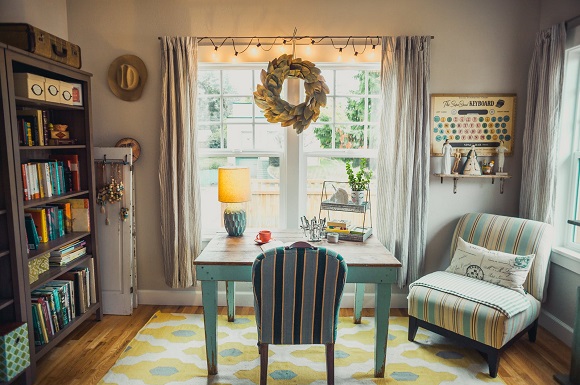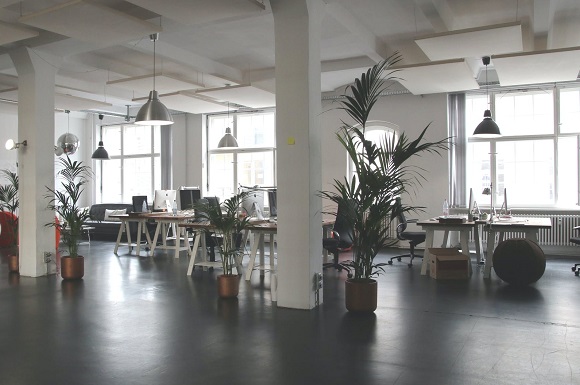
Written by:
John Jackson
Industry Editor
Business News Wales
Being able to work remotely has been my “norm” for almost two decades, and conversely I’ve also redesigned office spaces to create working environments that embrace modern working practices which increase wellbeing and productivity.
Such workplace transformations are highly considered, involving detailed planning of the space itself and consultation with the users of the space. This work was also accompanied by the introduction of remote working practices, that more often than not meant working from home, but did equally facilitate working from any location. Of course, this planned approach to delivering workplace transformations is in stark contrast to the widespread adoption of working from home that happened literally overnight when we first went into lockdown. Since then, understandably there has been significant speculation as to whether working from home would continue in the long term, and for our built environment this is raising significant questions regarding the future of office space itself.
At present, although we know our built environment will experience an impact from the increase in working from home, we don’t know what the full extent of it will be. With this in mind, the following article by Phil Jardine, Partner and Head of Real Estate at Blake Morgan, provides an industry perspective on the shift to working from home, and some of the implications this will have on the demand for office space in Wales.

Working from home – here to stay?
By Phil Jardine, Partner and Head of Real Estate, Blake Morgan
Mark Drakeford, the First Minister of the Welsh Government, perhaps tapping into the ‘obvious', has declared, in a post-COVID19 world, he would like to see 30% of Welsh office workers, continuing the necessity of the past 6 months, by working from home. Is he right? Is this reasonable, is it inevitable, is it a ‘good' ambition? I'm sure Mr Drakeford would be quick to recognise that we are all different and that ‘one size' does not ‘fit all', be that businesses, families, communities or just people! Nevertheless, credit to the FM, he is setting out a vision for the future and that is always welcome from a politician, whether we agree or not.
However, beyond complexities thrown up by personal preferences and nightmares for employers in trying to manage a wide variety of circumstances, inherent in any workforce, there are huge implications for society and the economy at large if we suddenly embrace ‘WFH' as the, much vaunted, new normal. Trendy words, such as ‘agile', ‘flexible', ‘smart' and dare I say, ‘dispersed', trip too easily off the tongue and are rarely thought through, let alone applied to the real world.
Quite apart from staggeringly difficult challenges, posed by issues like: public transport, personal mobility, childcare, schooling and the adequacy (or otherwise) of one's home office, we need to think long and hard about what a permanent shift to WFH means for local and national economies, businesses, society and the ‘place', formerly known as the office. A few thoughts occur…
Smaller…
I honestly don't know whether commercial property agents are laughing or crying right now? For decades they have been used to a rather stable property world, with rising rents, improving yields and growing businesses (and public sector organisations) defaulting to larger and bigger floorplates, particularly in City Centres. Commercial Property has been relatively solid and a safe haven for investors. All of a sudden, they are largely empty and government is saying that it actually wants people to stay at home (in Wales anyway), even once this wretched virus has left us alone.
Tenants are worrying about paying rents, Landlords are worried about falling rents and the prospects for their investment – funders are worried about their borrowers defaulting. Of course they are all right to be concerned. Let's not pretend! The commercial property market is in for an earthquake of unintended consequences over the coming months and even years. Plenty of people who hitherto were ‘sitting pretty' are no longer and both agents and lawyers are getting it in the neck. Instability and uncertainty is actually the new normal.

So gazing into the crystal ball, what's going to happen? It may be as difficult as predicting whether Cardiff City will make the playoffs, but most will agree that whatever the future landscape looks like, nothing will ever be the same again. Those, who for six months, have been confidently and dismissively predicting, that in a year's time, we will look back and sneer, saying ‘what was all the fuss about?', have recently gone very quiet. Even they know the shapeof the world has changed forever and even the word ‘change' poses a real threat to those of us who don't like change.
The first and perhaps most obvious, point to be made, is that, COVID or not, nobody is going to need the same amount of space anymore and like the would-be retirees, ‘downsizing' is the order of the day. We can expect vast quantities of unnecessary, underused or underutilised offices, coming onto the market over the coming months and years. Landlords will be steeling themselves for conversations with their tenants who want-out or simply don't want to renew leases on the same basis and (good news for the agents), this will create as many opportunities for some, as it does problems for others. Also, instead of purely exclusive, sole-purpose occupiers, jealously guarding and bragging about ‘their office' or luxurious conference rooms, are we going to see many more ‘collaborative' or shared properties emerging? This may create headaches for lawyers, but flexibility is not just about the WFH vs office conundrum; it's as much about the way in which we use or re-purpose our offices.
but better…
A second (not so) bold prediction and cliché – there must be a ‘flight to quality' in the midst of this unstable world. Why? Because people demand it and we need to give them good reasons to go anywhere. A subject for another day is the death or slow decay of the high street and city centre retail. Why don't people flock there ‘as of old'? They don't need to, they don't want to and once they get there, it's hardly an experience to write home about! Offices are no different. If employers want employees to return to the office and Boris wants office workers to help sustain a flagging economy and breathe life back into cities and high streets, it has to be worth the effort. Why leave the relative comfort of your home? Why give up the inherently flexible hours? Why surrender another two to four hours of your day to sit in a car or on a train or bus, pandering to your hypertension? Why spend £500 a month on travelling when you don't have to? Why bother?
This is the challenge; to make the destiny of your journey worth the effort of getting there. If the office at the end of the line is a less rewarding experience, than the home you left to get there, fewer and fewer will ‘go back' when it is safe to do so. A bland, vanilla, crammed and aesthetically tasteless, ‘call centre' environment is hardly going to set the pulse racing, let alone get the commuters travelling again. So let's use this ‘down-time' to make things better. If we decide that smaller places of work are more cost-efficient (and this seems to be the way we are all thinking) then let's make sure they are better, more compelling destinations, attractive and inspiring, places we will choose to visit and not feel forced to attend. In short, it's time to think more about the quality of the working environment. Developers, Investors, Employers, Contractors – ‘Unite!'
Of course, it's not just about the buildings themselves but also the surrounding area with its amenities and this is where authorities have a huge part to play. Instead of sitting still, frozen with fear and despair, constantly bemoaning the lack of footfall in town and city centres, let's get creative and start asking some hard questions. As I say, another subject for another time, but how can we make these places better, locations that will draw people in, instead of being increasingly pointless and repellent? Take Cardiff as an example. The City brands itself as a City of Arcades. Why not retro-fit St Mary Street and Queen Street, even The Hayes and make the whole City Centre a light airy, green, warm and attractive, covered space – one huge Arcade? What a selling point that would give our capital!
And good for us all
Well-being is one of those overused, even abused, expressions that are thrown into almost every conversation. However, the well-being of our people is paramount, wherever we are working. It's as important that the home environment is right and conducive to a healthy and productive day's work, as it is for the office. One of the next challenges faced by all employers, blithely encouraging WFH, is to ensure that the safety, health and well-being of their people is properly addressed, when they are ‘out of sight'. No doubt there will be a few rude awakenings in this regard, some way down the track.
But well-being should be at the heart of our office environment too. People's lives should be enhanced by ‘coming to work' and not made worse. One of the strongest arguments in favour of not working (entirely) from home is that we are social animals and crave the interaction, friendship, camaraderie and mutual support that a good office can bring. We need better spaces therefore that add value to our mental and physical well-being and that encourage good positive behaviours within us all. After all, the office, like the home, should be a place where we can give of our best and that we enjoy. A good office makes for a better lawyer, accountant, architect or surveyor and every variety of professional improves their skills and confidence, when they are developed by their colleagues in a great place, where they enjoy being.
Whatever the future may bring!
We now know that this crisis, whilst not with us forever, is going to linger for a long time to come. The last six months has caused us to think about many things, not least the future relationship between our homes and the office. It's not either or. That's plain daft and It is about how both environments can and should be made better. Mr Drakeford sees a world where 30% of us will be working from home. He may be right. I suspect it's a bit more nuanced than that and 30% may be wrong anyway. I doubt 30% will WFH and I doubt that will be for 100% of the time. Whatever the various percentages from one person or business to another, no doubt there has been a paradigm shift that has huge implications for us all and the buildings in which we operate and bear our identity. We need to respond to and indeed, embrace that change, making whatever adjustments and improvements are essential for a better future, for ourselves, our workplaces and the cities or towns in which they sit.
Phil’s article confirms something many of us know: that we are living in a time when instability and uncertainty are the new “norm”. In these uncertain times, he highlights a number of factors that are likely to become certainties that will have an impact on our built environment for the foreseeable future.
These include:
- Less office space will be needed
- More office space will be coming onto the market
- Increasing numbers of tenants will not be renewing current leases
- Demand for shared office space could see an increase in demand
- There will be a need to repurpose offices
- A shift to smaller offices could also see demand for higher quality spaces
- The need for urban centres to be highly attractive places for people to work in.
How significant and lasting this change in working patterns is going to be will in part be determined by how long it takes for a Covid19 vaccine to become widely available. The longer it takes the further we’ll move away from a way of life that, until 2020, has been our accepted norm. However, whilst there’s no underestimating the scale of the challenge, it does also present opportunities to re-think the use of office spaces. This may well mean creating smaller, higher quality, easier to let spaces as part of what could well become mixed use buildings that include residential conversions. The provision of high-quality spaces for office work and residential will play an important role in attracting people into our urban centres. This in itself will support many aspects of our economy, whilst at the same time helping to ensure a vibrant future for our urban centres.












